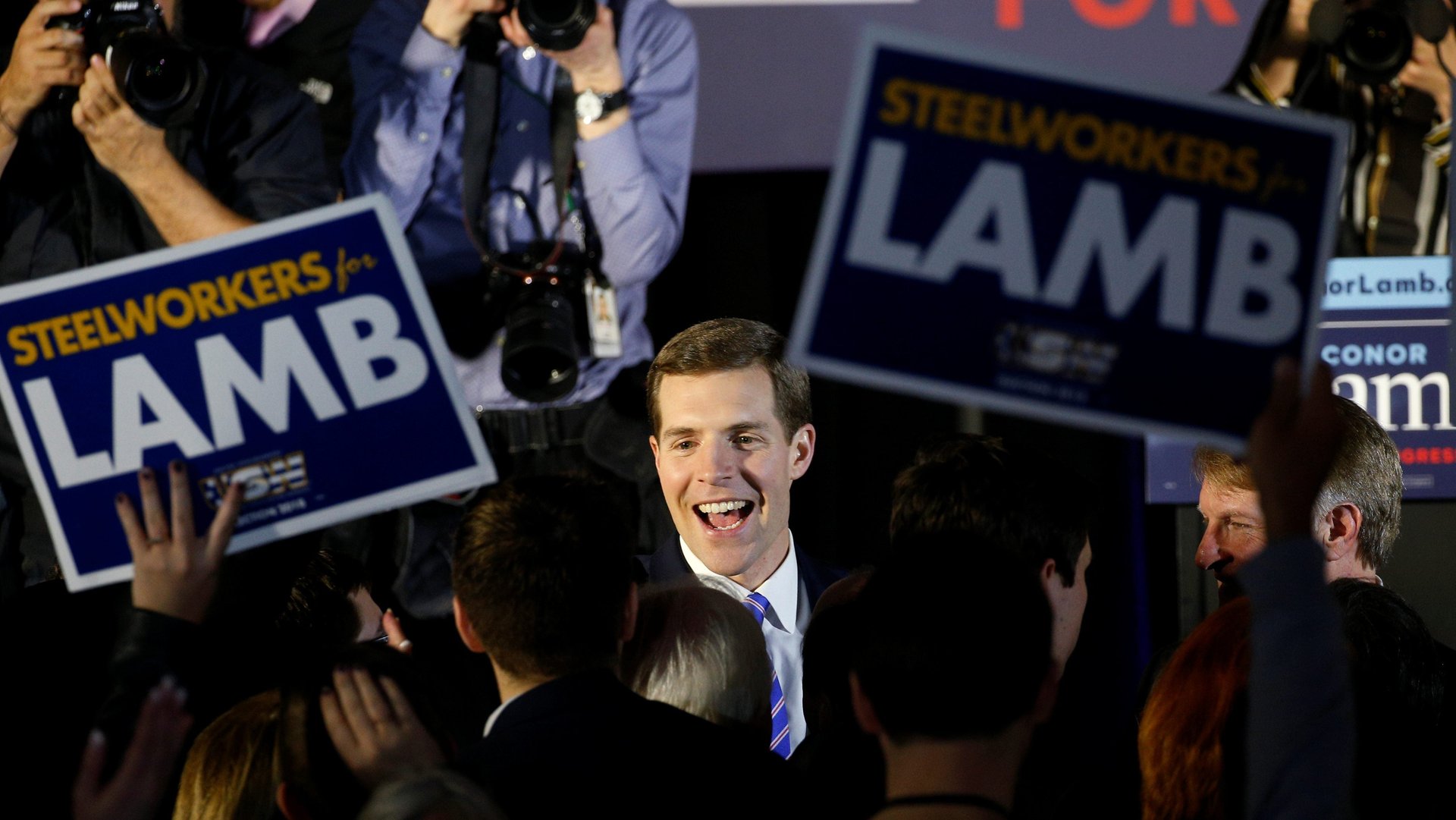Republicans spent more than $105 a vote in Pennsylvania’s special election
Pennsylvania’s special election has come down to a nail-biting finish, with Democrat Conor Lamb projected the winner in the early hours of the morning. It’s an astounding feat in a staunchly Republican district that Donald Trump took by about 20 percentage points in the 2016 presidential election.


Pennsylvania’s special election has come down to a nail-biting finish, with Democrat Conor Lamb projected the winner in the early hours of the morning. It’s an astounding feat in a staunchly Republican district that Donald Trump took by about 20 percentage points in the 2016 presidential election.
The District 18 election is a wake-up-call for the Republican party ahead of the 2018 midterm elections, and widely considered a referendum on Trump’s first year. Trump campaigned for Republican Rick Saccone just last weekend, and his pro-coal company policies were expected to bring Republican voters to the polls.
The vote is also a sign of the limits of corporate influence and so-called “dark money” in US elections. Lamb refused to take donations from corporate political action committees, but still raised far more money than his challenger from individual donations.
Outside Republican groups, including the Paul Ryan-affiliated super PAC Congressional Leadership Fund and the National Republican Congressional Committee dumped millions in advertising dollars into Saccone’s campaign in the last weeks, hoping to make up the difference. Lamb drew far less funding from PACs.
According to the latest results, Saccone has 113,079 votes in total—which means Republicans spent $105.24 for each vote. In contrast, Trump won the presidency on the back of $408.4 million in candidate fundraising and outside spending, or about $6.48 per vote.
It’s a particularly expensive loss, given the winner will only hold the office until the November elections, when Pennsylvania’s electoral map will be redrawn, and the district will change.
Saccone’s camp has yet to concede the election, and Lamb is currently up by just over 600 votes.